Share
Working at ESO
Are you interested in working in areas of frontline technology and in a stimulating international environment? Do you feel your profile matches our requirements? Learn more about our current vacancies and apply online. Read more..
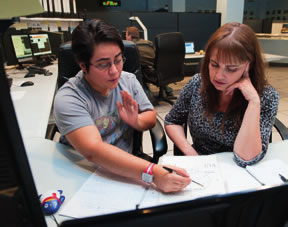
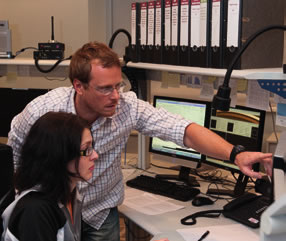
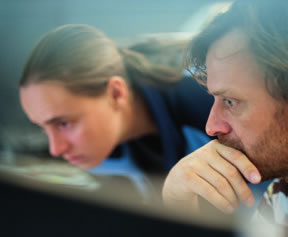
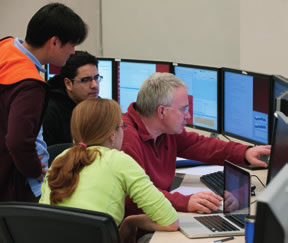
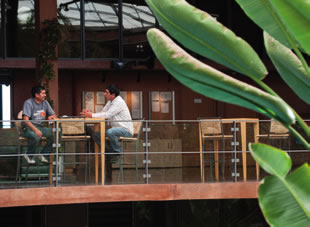
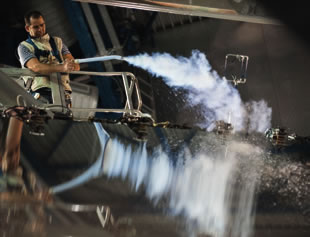
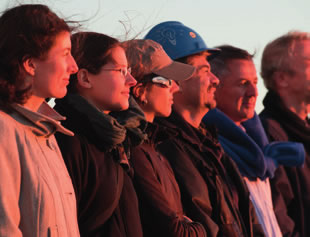
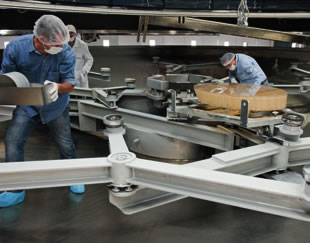
Fellowship Programme Europe 2023/ 2024
Garching
Deadline 15/10/2023
Reach new heights at Europe's leading astronomy organisation
The European Southern Observatory (ESO) invites applications for the ESO Fellowship Programme 2023/2024. The Programme is designed to help early career scientists to develop their independent research programmes and successfully reach the next step of their scientific careers by:
- Developing their scientific profiles benefiting from a rich and structured scientific environment where they can interact with more senior scientists;
- Becoming mature and independent researchers who will develop their own research projects and contribute effectively to collaborative scientific endeavours;
- Getting prepared to take on higher scientific, technical or supervisory/managerial responsibilities in future positions.
Fellowships are available both at ESO's Headquarters in Garching near Munich, Germany, and at ESO's astronomy centre in Santiago, Chile. ESO Fellows are expected to actively participate in ESO's scientific life by proposing and contributing to the organisation of scientific workshops, co-supervising PhD students, coordinating thematic research groups, joining scientific committees, organising seminars, writing competitive grant and telescope proposals, among other activities.
More information about the fellowship programme and ESO's astronomical research activities can be found at: http://eso.org/sci/activities/fellowships-and-studentships/FeSt-overview/fellowship_programme.html.
The ESO Fellowship Programme: ESO-Germany
The ESO Headquarters is situated in Garching near Munich, within the campus of the Technical University of Munich (TUM) and several Max-Planck institutes, all together forming an active research centre that boasts one of the highest concentrations of astronomers in Europe. High-calibre scientists, instrument experts, and other professionals are all within easy reach, providing fellows with valuable opportunities to start collaborations and learn new skills. On the Garching campus, ESO also participates in the ORIGINS Cluster, which gathers nearly 200 scientists, and the IMPRS Programme for PhD students. For a list of current ESO staff and fellows, and their research interests please see http://www.eso.org/sci/activities/garching/personnel.html. ESO Fellowship positions in Garching are of 3 years duration. In addition to developing their independent research programmes, ESO Garching Fellows are expected to engage in functional work for 25% of their time. During this fraction of time, fellows are trained in crucial areas of high-level technology and/or actively participate and contribute to ESO projects, which they select from activities proposed by different departments. Details on the nature of the projects can be found here.
The ESO Fellowship Programme: ESO-Chile
The ESO Vitacura Office, in Santiago, is where ESO Fellows have the possibility to interact with Instrument and System Scientists, and Science Operations Managers from Paranal, ALMA, and La Silla. There is also a continuous flow of visiting astronomers and observers that allows stimulating scientific interactions with the international community. ESO Chile is an excellent place to increase collaborations with the Chilean astronomical community, with Santiago being host to a large number of ever-growing astronomy departments. This is in addition to the astronomy communities at other international observatories located in the country. The Joint ALMA Observatory is also located on ESO's Vitacura campus, further enhancing the scientific environment available to ESO Chile Fellows. For a list of current ESO astronomers and their research interests, please see: http://www.eso.org/sci/activities/santiago/personnel.html.
ESO Fellowships in Chile are granted for 4 years. During the first three years, the Fellows are assigned duties within one of the Science Operation groups of Paranal or ALMA, where they contribute to observatory operations at a level of 80 nights per year, corresponding to 50% of their working time. Fellows with duties at ALMA will have opportunities to participate in ALMA operations at both the Joint Alma Observatory in Santiago and at the Operations Support Facility near San Pedro de Atacama, including observing at the telescope, data processing and analysis, software testing, serving as technical experts in the ALMA proposal review process, and developing new capabilities for the array. Visits to and duties at the ESO ALMA Regional Center at the ESO Headquarters in Munich are also possible. At Paranal, Fellows act as support astronomers, executing service-mode observations or helping visiting astronomers to achieve their scientific goals. They are also expected to join an Instrument Operations Team. In the role of Instrument Fellow, they gain an in-depth knowledge of various aspects of a given instrument such as engineering and technological characteristics, specific operational aspects, and data quality. In these environments, ESO Chile Fellows can develop useful skills in project management, team coordination, and communication in a multi-disciplinary environment. Exploiting this unique mix of technical knowledge and their close contact with the science carried out at the Observatories, ESO Chile Fellows can build a solid research programme that can boost their future career. The ideal candidate should demonstrate comprehension of general science cases outside the candidate's field of research, have good communication skills, should work independently, have time management skills, and should be willing to take personal responsibility for their work.
ESO Chile Fellows may choose to spend the fourth year at any astronomy/astrophysics institute in an ESO member state or ESO's strategic partner, Australia. The Fellow may also be hosted by a Chilean institution where they will be eligible to apply for telescope time through competition for Chilean observing time. There is also the possibility to spend the fourth year at ESO either in Santiago or Garching. There are no functional duties during the fourth year except in the case that the year is spent at ESO Chile, where Fellows are expected to carry out functional work for up to 25% of their time.
Science funding
In both ESO-Chile and ESO-Germany there exists an 'Office for Science' that oversees all science-research activities within the organisation. The Office for Science provides funding for attending international conferences and workshops, together with science visits to other institutes during the fellowship. There is also the possibility to co-supervise students while at ESO; from short-term interns to PhD students. Fellows have the opportunity to organise international conferences using funds provided by ESO. Fellows can also apply for additional, limited research funds through an internal, competitive process.
Qualifications
The programme is open to applicants who will have achieved their PhD in astronomy, physics or a related discipline before 1 November 2024. Early-career scientists from all astrophysical fields are welcome to apply. Observational, theoretical and computational astrophysics are all areas where ESO Fellows can benefit from one of the most vibrant and stimulating scientific settings anywhere in the world.
Remuneration and Contract
We offer an attractive remuneration package including a competitive salary and allowances, comprehensive social benefits, and we provide financial support for relocating families. Details of the Terms of Service for ESO Fellows including details of remuneration are available at: ESO's conditions of employment.
Applications
If you are interested in enhancing your early career through an ESO Fellowship at the most advanced ground-based observatory in the world, then please apply by completing the web application form available at: https://recruitment.eso.org.
Candidates are asked to include the following material as part of their application:
- a cover/motivation letter;
- the application form in PDF format, with all the relevant parts completed. The form is available as Word, LibreOffice and Latex templates and can be downloaded at this link: https://www.eso.org/sci/activities/fellowships-and-studentships/FeSt-overview/fellowship_programme/application_guidelines.html;
- the names and contact details of three persons familiar with your scientific work and willing to provide a recommendation letter. Referees will be automatically invited to submit a recommendation letter by the application deadline. Applicants are strongly advised to trigger these invitations (using the web application form) well in advance of the application deadline.
Recruitment Process: Timeline
Depending on whether you are applying for the ESO-Garching or ESO-Chile Fellowship, the schedule of the recruitment process will follow a slightly different format and timeline.
15 October 2023:closing date for applications. Incomplete or late applications will not be considered.
October - November 2023: review of the applications.
Mid-November 2023: shortlisted candidates are invited to a video interview where they will also be asked to present their science. In Garching, the interview is done in two stages during December. In Chile, the Interviews will be scheduled for early December.
End of December 2023:offers are sent by the Chair of the Fellows' Selection Committee to the top-ranked candidates. Candidates on the waiting list and unsuccessful applicants are also notified.
Further information
Please find at the following link contact details for questions related to the ESO Fellowship Programme: eso.org/fellowships
ESO Values
An important element in any successful employment relationship is harmony in values between an organisation and its people.
The ESO Values are:
ESO strives for excellence through innovation.
ESO provides outstanding services to its communities.
ESO fosters diversity & inclusion.
ESO believes in the key role of sustainability for its future.
Achieving the above are recognized as only possible on the basis of personal values and attitudes that we expect from our employees: respect, integrity, accountability, commitment, collaboration, and clear & open communication.
Applicants to any ESO role are asked to reflect on their affinity with these values and advised they may be asked about them if called for interview.
Diversity
ESO has established diversity as an important value of the Organisation, is committed to providing an equal opportunities environment and is actively seeking to promote a diverse and inclusive workforce: https://www.eso.org/public/about-eso/sustainability/dei-at-eso/
Nationality
Except for outstanding applications, recruitment preference will be given to nationals of Australia, Austria, Belgium, the Czech Republic, Denmark, Finland, France, Germany, Ireland, Italy, the Netherlands, Poland, Portugal, Spain, Sweden, Switzerland, the United Kingdom and Chile irrespective of gender, age, disability, sexual orientation, ethnicity or religion.
